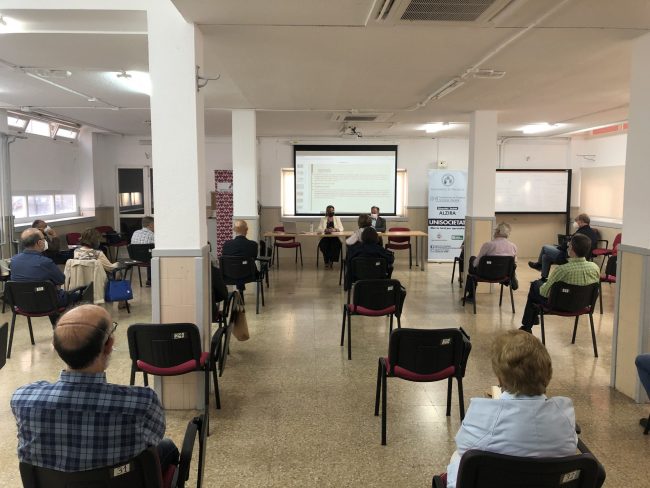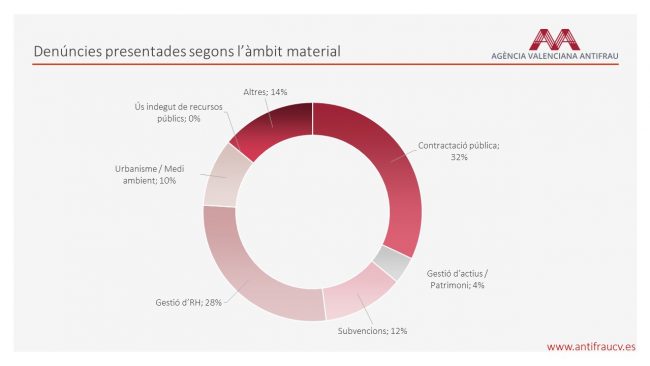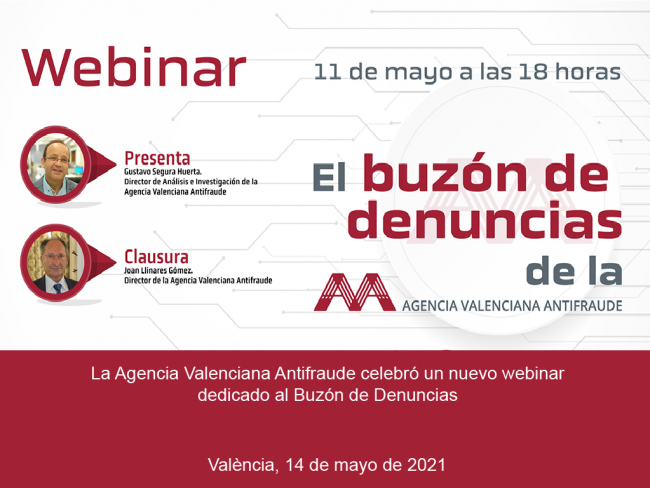On May 25, the Professor of Constitutional Law at the University of Valencia, Sefa Ridaura, gave the presentation “Covid-19 and fundamental rights” in the UNISOCIETAT conference cycle, in face-to-face format, within the framework of the collaboration agreement existing between the Valencian Anti-Fraud Agency with the Vice-Rector’s Office for Territorial Projection and Society of the University of Valencia.
Joan Llinares, director of the AVAF, has presented, in the city of Alzira, the conference where the exercise of fundamental rights in the Spanish constitution of 1978 and what rights can be affected during the declaration of exceptional states have been the protagonists . The possibility of limiting fundamental rights without the coverage of the state of alarm has also focused the conference.
The public attending, 22 people, attending the anticovid measures stipulated by the pandemic, has actively participated by asking questions, which have focused on understanding how the declaration of the state of alarm has affected their fundamental rights.
The Valencian Anti-Fraud Agency actively participates in the Unisocietat program as it is an instrument that carries out training activities in a decentralized manner and where the citizens of the different regions and localities of the Valencian territory are the protagonists of the debates and reflections generated by each training action. .
Fecha de publicación:




